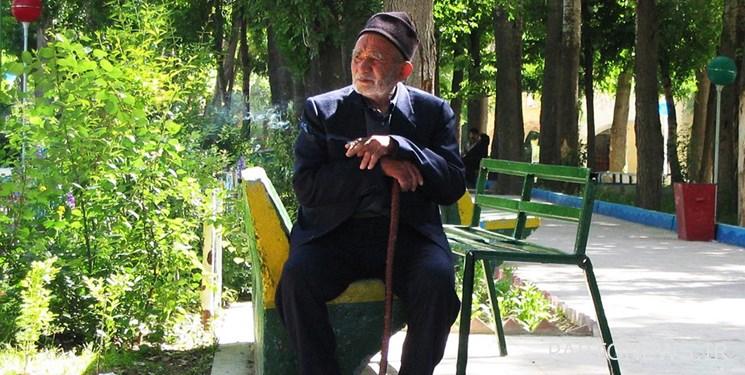Iran’s aging crisis is not an opportunity for trial and error

According to the Fars news agency from Shiraz, a lady about 30 years old rushed out of the shop and disappeared in front of my eyes. I followed her and went to the shop from which she had left. He asked, do you need anything? I said that the woman who bought here a few minutes ago was anxious, did something happen? He shook his head and confusedly said, was he related to you? I answered: I was worried about him, that’s all…
As if he was a little relieved, he took a breath and said: “Abortions are increasing these days and there are many such cases on this street every day, she is one like the others!” I understood what was going on and left the shop.
For a moment, I thought about that innocent fetus, who is destined to live in this world unintentionally and is saying goodbye to it unintentionally! My heart sank when I came across the high number of abortions in the country and especially in Fars province through an internet search, and the breaths that didn’t come stopped!
From the beginning to the end, if you walk down a famous street in Shiraz, you will find all kinds of medicines that require strong prescriptions or cannot be found at all! From smuggled goods to some rare and rare medicines… the crowding of this street definitely does not mean much, especially in recent years when the high number of abortions is very visible.
On November 10, 1400, when the Guardian Council approved the population youth plan, many predicted that this law could lead to an increase in the number of illegal abortions in the country.
Vacancy of gynecologists, midwives, health system experts and also the welfare organization in the drafting and writing of this law was a source of controversy and criticism from the beginning.
Some concerns such as the prolongation of the abortion treatment process, the loss of the golden time for this action, restrictions on screening tests, the loss of insurance coverage for tests related to screening, the loss of trust between doctors and midwives and pregnant women, and the increase Concerns about the rise of children with developmental disorders or disabilities were some of the most important criticisms of this law.
Faults that can lead to an increase in the number of illegal abortions.
The law of population increase brought with it micro-factors to prevent the population aging crisis and the worrying consequences that will follow by encouraging families to have children, but it remains to be seen how much this law actually reduced the concern of families about having children. Is?! Has there been a solution for the most important factor under the name of the economic situation that is facing childbearing today?!

Not many years have passed since the false slogan “fewer children, better life” had become so popular in Iran that if someone went to the hospital to give birth to their third or fourth child, they would be treated very badly and their child would be deprived of some services. It would have been possible, the slogan that the supreme leader of the revolution said about it was a wrong slogan and they have warned many times about the aging of the population.
Based on the same message and with the increase of inflation and the narrowing of the economic sphere on the people, the birth rate decreased so much that today the country of Iran is falling with a sharp slope towards the aging of the population.
A problem that, if not addressed, will turn a young and fresh Iran into an old and indolent Iranian in the not-so-distant years.
It is then that the amount of labor is greatly reduced, the number of children and minors is reduced, and as a result, the vitality of the society disappears, and instead, the increase in the population of middle-aged and old people makes the bottom of the scale heavier with the increase in cost, and finally leads to the emergence of There will be many issues and problems that cannot be easily resolved.

It is a problem that the parliament, the government and other stakeholders must have a more serious determination to find a solution to.
Approvals that are not enough
Granting low-interest loans and good loans, facilitating the provision of housing, being covered by insurance for infertility services, etc. may not be strong incentives for this issue, although these trivial things are not implemented in practice 100%!
Director General of Women and Family Affairs of Fars Governorate says: The Youth Law was passed in November last year, but it was promulgated in June this year, and it has been about 7 months since its implementation in the provinces.
Stating that in the provinces, strategic nuclei with the three factors of women and family, active people’s institutions and the governing body have been formed and are being followed up, he said: “The effort is to do people-oriented work.”
Referring to the second rank of strategic cores by Fars with a score of 90, he said: Our public opinion in compiling this document made us get the second rank in the country, which shows the hope of continuing the path to reach the goal. .
The Director General of Women and Family of Fars Governorate said: The youth working group of the population headed by the governor and the secretary of the Director General of Women has held 7 meetings in Fars so far and there have been approvals that we are following up and implementing the approvals.
Emphasizing on taking national indicators into consideration, he said: The effort to change the indicators and make them popular is one of the success factors of the province, which is followed seriously.
Yeqtin named the granting of loans to 40 thousand people in the province as one of the executive approvals of this law and said: In the Banks Coordination Council, the necessary warnings have been given to the banks that are procrastinating, and the legal and natural process of granting loans to children born from From November 1400 onwards, it will be possible for a period of two years, but the granting of housing facilities of 200 million tomans has not been announced yet.
He held numerous meetings and followed up on issues such as setting up infertility centers, contracting infertility centers with insurance companies, monitoring infertility treatment costs, supporting infertile couples, paying marriage and childbearing facilities, following up on the construction of married couples’ dormitories, providing land for families with three children. He considered the above as other facilities and continued: To prevent abortion, the establishment of the Nafs People’s Center, the establishment of a branch to deal with violations in the field of abortion, and the activation of the anti-trafficking headquarters in the field of monitoring and combating the sale of drugs. Prevention of pregnancy and abortion as well as setting up counseling centers are among the programs.
According to Yaqtin, the fertility rate in Fars province is 1.52 tenths, the average age of marriage for men is 31.5, the average age of marriage for women is 26 years, the age gap between the first and second child is 4.4, the celibacy rate is 36.4, and the divorce rate is 10. 8, the number of households with 5 people and above is 235,651, the population aged 15 to 64 is 65.51%, the population over 65 years old is 6.45%, and the population under 15 years old is 21%.
Regarding cultural measures, he also said: Although some cultural measures are being implemented, this sector definitely needs more work and effort, and it is more difficult and time-consuming, and more efforts should be made to realize it.

The breath that returns
In the following, we talked with an expert on the implementation of the Nafs project (saving aborted children) and Mehdi Akbari said: In order to prevent abortion, the Nafs project was started in August with the aim of saving aborted children, centered on the mobilization of the medical community.
The expert on the implementation of the Nafs plan added: In line with the implementation of the law on the youth of the population and considering the significant number of abortions in the country as well as in Fars province, which has a high record, we tried to implement this plan.
He continued: Therefore, through the resources we have, we identify people who decide to have an abortion and we try to dissuade them with counseling.
Akbari pointed out that all the issues and reasons related to this decision are not economic reasons and said: sometimes a small difference causes couples to decide to abort a child.
He mentioned the granting of economic support packages, as well as medical support and funding for the hospital, making Zainabieh hospital free and following up on specific problems, etc., among the help in this direction, and stated: since the beginning of this plan, about 70 abortions have been prevented. and in general, in the period of 6 months, we have stopped about 80% of the cases that were introduced to us.
He emphasized: Usually, the cases where they do not accept and are not satisfied with keeping the child, are illegal cases and insistence is not allowed.
Akbari also stressed on holding continuous meetings by the members of the Jamiat youth working group in Fars province and investigating this issue and said: Abortion is a heinous practice in all religions and religions, and our goal is to save all children, so the authorities should pay more attention so that they can protect these children. save
According to Fars report, although the government is trying to implement various clauses of the youth population law as soon as possible, it should not be forgotten that the government, as an enforcer of laws, cannot handle this task alone, and it is necessary for experts and specialists in this field to This is a help to overcome this great danger by putting the puzzle together correctly.
Undoubtedly, we no longer have a chance for trial and error, and we must carefully and without wasting time pass this great challenge that is in our ears, and in the meantime, we must not neglect the incentives that are included at the beginning of the clauses of this law based on demographic studies. More importantly, we should not leave a gap between words and actions to make up for the mistakes earlier than expected.
Report by: Razia Najjar
end of message/

